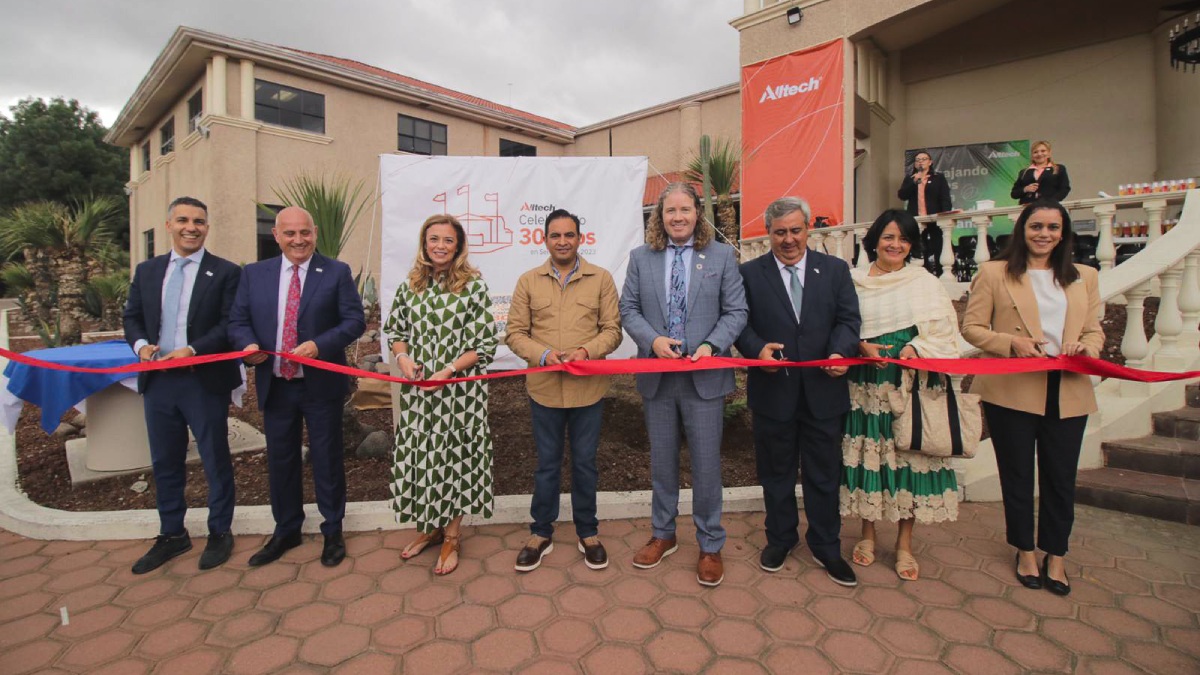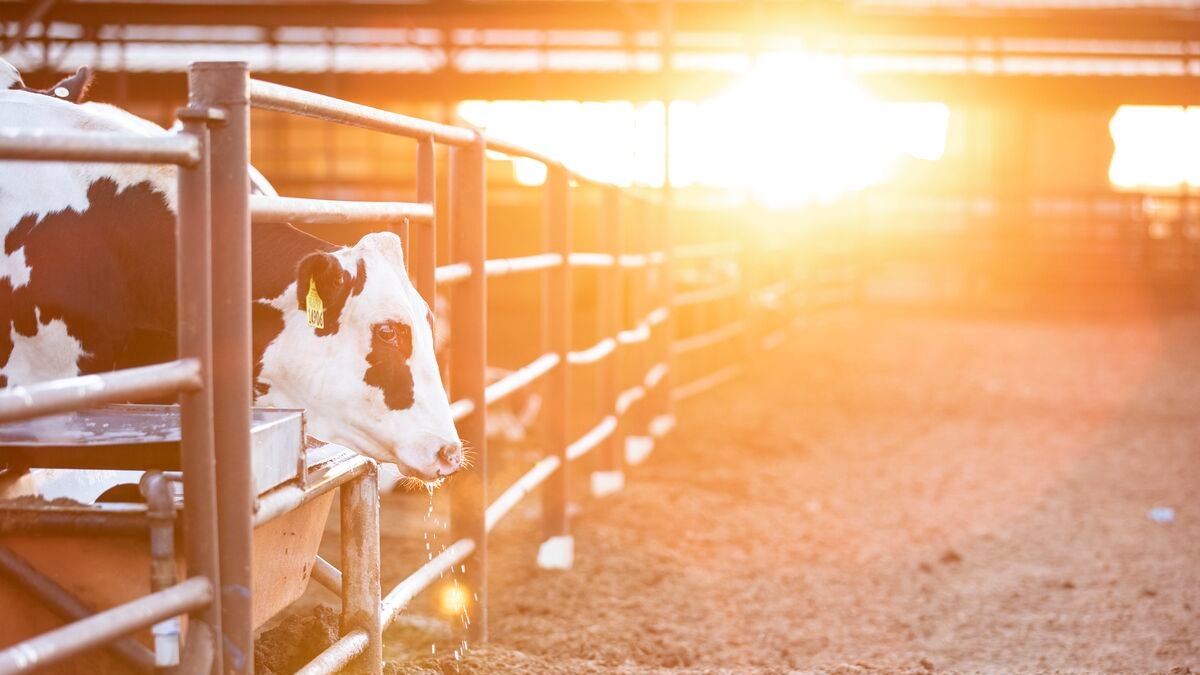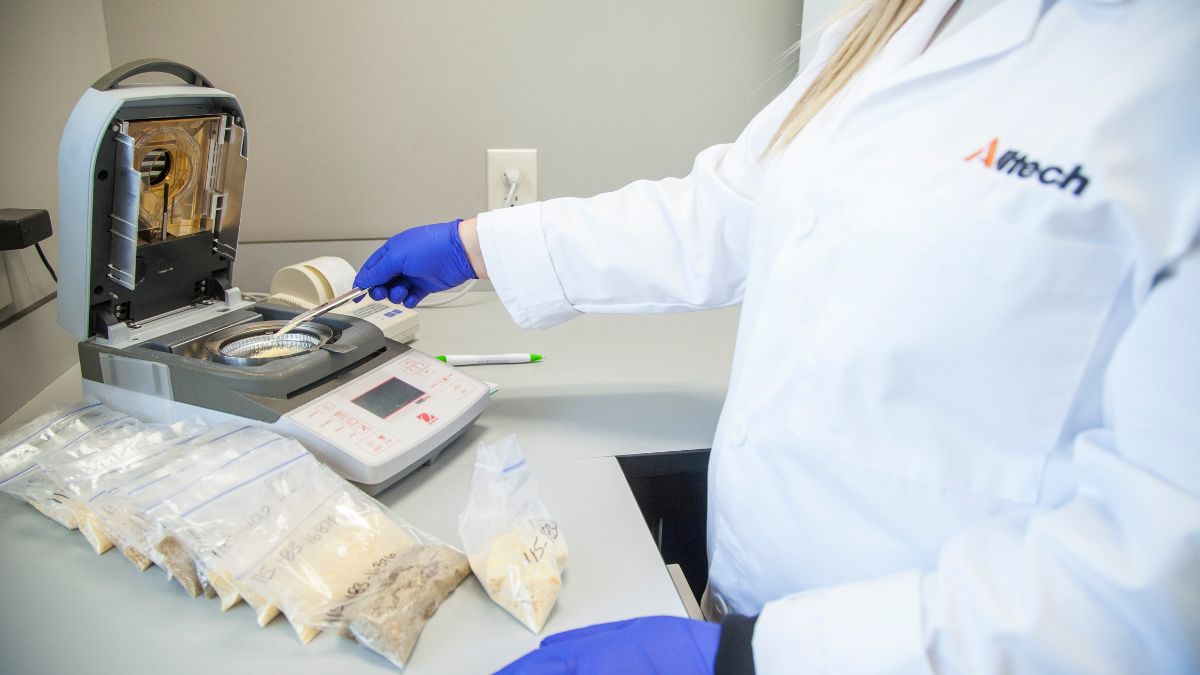Alltech Serdán: 30 years of supporting livestock production, animal welfare and sustainability
[Serdán, Mexico] – Alltech, a leading global animal health and nutrition company, celebrated 30 years of operations at its production facility in the Mexican city of Serdán, in a ceremony on Tuesday that included Dr. Mark Lyons, president and CEO of the company, guests from around the world, local officials and Alltech team members.
Thirty years ago, Alltech’s research into the benefits of Yucca schidigera extract for animal health, performance and welfare paved the way for the company to establish a Yucca schidigera processor in the city of Serdán. The place was chosen for its semi-desert climate, where the yucca plant grows naturally. Serdán is located 190 kilometres southeast of Mexico City and has access to one of the most important ports in the country: Veracruz; from which two of its most important technologies are exported: De-Odorase® and Allzyme® SFF.
Alltech’s investment in Serdán increased Alltech’s operational footprint and offered new nutritional solutions that improve animal health and production efficiency. However, the resulting partnership between Alltech and the community of Serdán has been even more significant.
“The way the community and our company work together is incredible,” said Dr. Mark Lyons. “From the very beginning, we have been linked, as the success of one builds the success of the other.”
Alltech and the residents of Serdán have worked together on numerous community engagement projects that support underserved families and vulnerable populations. The collaboration began with supporting a local children's home, Casa Hogar, and has now grown to 23 active projects.
“Serdán has served as a template for Alltech’s community involvement activities all around the world,” Lyons said. “We ask our colleagues in 350 communities around the world to ‘make a difference’ as our founder Dr. Pearse Lyons encouraged us, and Alltech Serdán is the best example of this spirit. This is a place where the culture of Alltech is truly alive.”
Making a difference is one of Alltech’s core values — a founding principle of the company.
“Dr. Pearse Lyons would be traveling the world and might call at any time to ask how things were going at the plant,” said Paul Kilgallen, Latin America fermentation facilities director. “A call from Dr. Lyons never ended without him asking, ‘And what are we doing for the community. How are the projects going?’”
Alltech Serdán has received numerous recognitions for its community involvement, including being certified by Empresa Socialmente Responsable (ESR) for the past five years. This award recognizes the company’s commitment to implement socially responsible management practices and promote community projects, including supporting schools, orphanages, health centers and more. Alltech Serdán’s community activities are complemented by the constant application of responsible business practices with suppliers, customers and workers.
“Alltech takes great pride in this manufacturing facility and its 30 years of making a positive impact on the community,” Lyons said. “A visit with our team members in Serdán always reminds me of the meaningful impact we can have when we work together.”
Harnessing the power of yucca — and solid-state fermentation
Since the 1990s, Alltech’s research on Yucca schidigera had shown that the glycocomponents it contains can significantly reduce ammonia emissions from the livestock industry. The company designed De-Odorase, a solution made from an extract of the yucca plant that helps reduce the levels of harmful gases from animal waste. When Alltech Serdán began operations in 1993, the facility had the capacity to process 40 tons of yucca per month. This figure has since grown tenfold.
Years later, in 2000, thanks to a project led by Kilgallen and Dr. Mark Lyons, Alltech Serdán also became the company’s first production plant to take charge of the solid-state fermentation process to produce Allzyme SSF. This natural enzyme complex, which maximizes the release of nutrients from the feed, allows agricultural producers to reduce the cost of their diets by making their formulations more flexible.
Replenishing the planet’s resources
Alltech Serdán’s commitment to sustainability aligns with the company’s purpose of Working Together for a Planet of Plenty™, which begins locally with the replanting of Yucca schidigera. For every yucca tree harvested for Alltech’s nutritional solutions, the company plants three new trees using seedlings from the facility’s on-site nursery, which has grown more than 200,000 seedlings thus far.
In addition, Alltech inaugurated its first global renewable energy project in Serdán in 2022: a photovoltaic solar energy system that covers 46% of the energy requirements of its operations. With the new system, Alltech has seen energy cost-savings of 22% in the first year the system has been used and a reduction of 650 tons of carbon dioxide equivalent (CO2e) emissions per year. That reduction is equivalent to 11,000 tree seedlings growing for 10 years.
The facility also switched from using liquefied petroleum gas to compressed natural gas, reducing its annual CO₂ emissions by 17%. Likewise, the implementation of an economizer in steam boilers allowed the plant to reduce 240 tons of CO₂ per year.
Alltech Serdán’s anniversary reinforces the company’s global commitment to continue seeking the success of local producers, promoting animal welfare, and having a positive impact on the communities in which it is present.
For more information, visit alltech.com/es-mx.
- Read more about Alltech Serdán: 30 years of supporting livestock production, animal welfare and sustainability
- Log in to post comments

Dr. Mark Lyons, president and CEO of Alltech, along with international representatives, local officials and team members, celebrated 30 years of Alltech Serdán operations.























